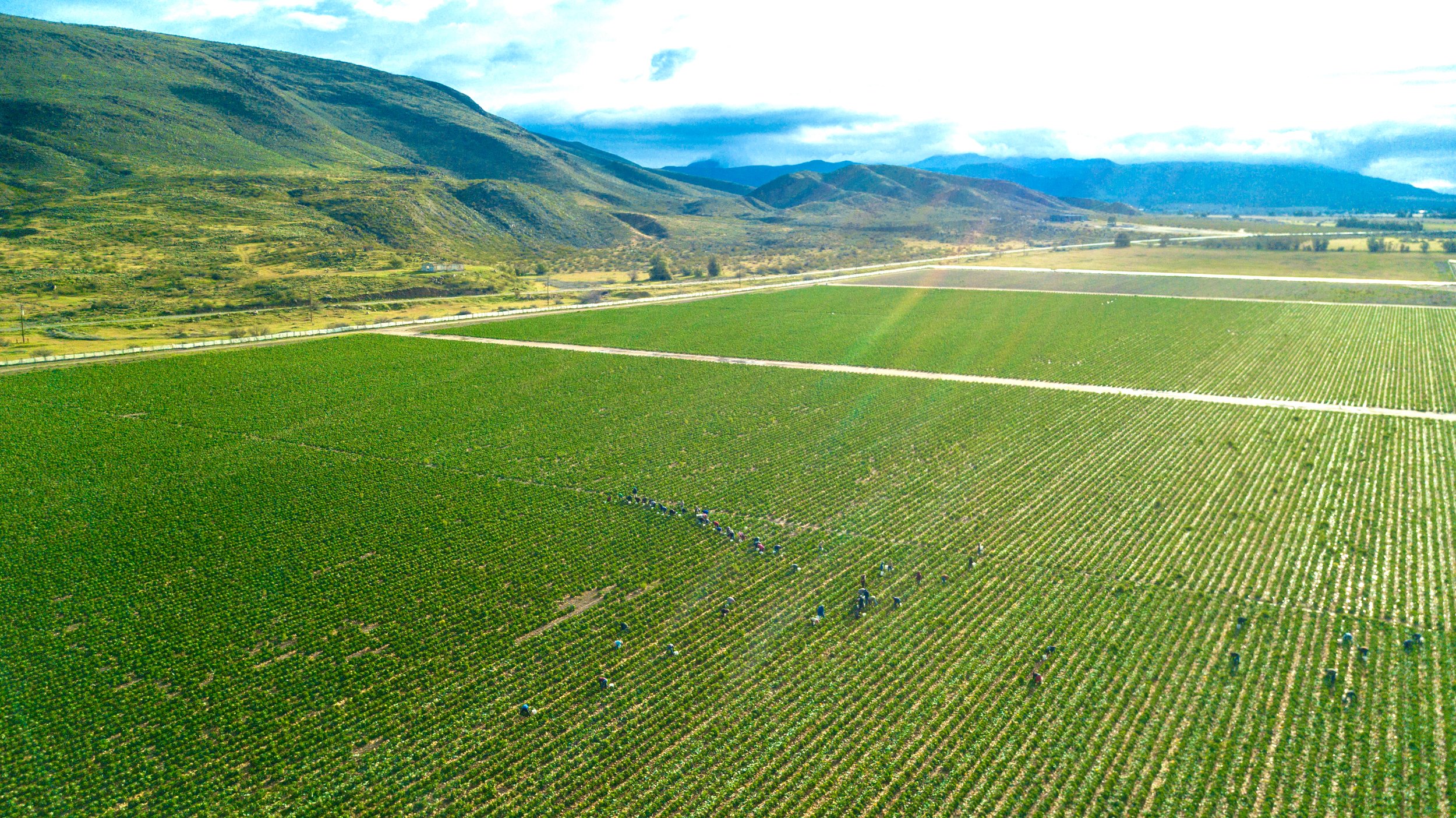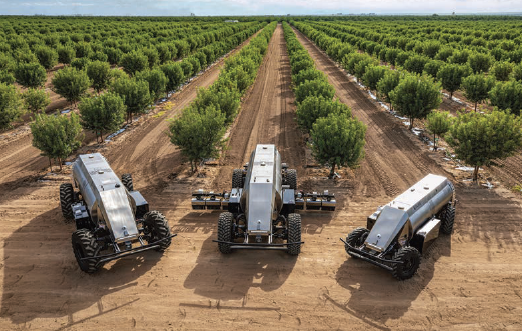Welcome to Blue Book!
Are you ready to join the thousands of companies who rely on Blue Book to drive smarter decisions? View our plans and get started today!
Still have questions? We’d love to show you what Blue Book can do for you. Drop us a line– we’ve been waiting for you.
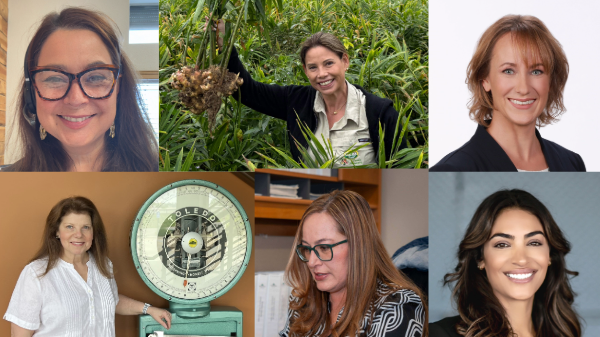
In this article

As a business long dominated by men, more women have not only entered the produce industry but reached the highest levels of executive management. Most would agree the transition has been good for everyone—but will the trend continue?
We talked to six women about their journeys and what it takes to succeed in this unique and unpredictable business.
Whether they were attracted by family connections or a sense of adventure, the women interviewed for this article have a declared passion for all things produce, even with its hectic, pressure-filled 24/7 schedule.
All are committed to their careers and cultivating the next generation, with women and men in equal measure. Most believe the path to success is paved with determination, perseverance, hard work, and tough skin. Read on to learn more.
Keeping Her House in Order
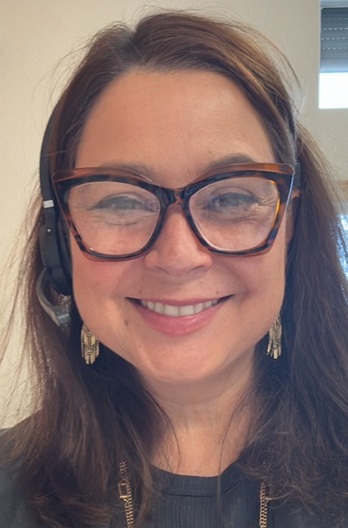
“Either you fall in love with the business, or you don’t,” contends Raquel Espinoza. “It’s dynamic and there’s always something to learn every day,” she adds.
Espinoza would know: she’s managing member and director of sales and marketing for Produce House, LLC BB #:300387, a Nogales, AZ-based grower, importer, and distributor.
She started in the produce business 35 years ago as a receptionist, where she stayed for 25 years learning the ropes, before striking out on her own. Now she runs her own company with a partner who operates from Sonora, Mexico.
The U.S. business is comprised equally of women and men, with several women advancing under her leadership. Produce House’s CFO and head of administration are both women and others are rising to higher levels of responsibility.

Yet it isn’t about gender. With more women in the industry, it’s about finding the right candidate. “When you’re looking at talent, you’re not looking at whether they’re women or men—you’re trying to find the best talent.”
In addition to her Produce House duties, Espinoza also serves as chair of the Fresh Produce Association of Americas, which she joined to learn more about the intricacies of the industry, lobbying, and to provide more opportunities in importing.
“I’m continuing to improve myself, learning about the issues I don’t see behind my desk,” she explains. “This association enables me to have discussions with politicians in Washington, DC and Mexico, and here in Arizona, to build new connections.”
Sculpting the Industry

Deborah Dijkhuizen, president and CEO of Delina Fresh BB #:270667 of Sunrise, FL, an importer and exporter, is also committed to empowering the next generation, with the hope of there being more female executives.
At work, she approaches associates she feels have potential and encourages them.
She’ll interview everyone who applies for a job and tells them where she sees their future. Her offer: “Shadow me and I’ll take you there.”
Delina Fresh also offers to pay for the education required to promote workers to higher positions, and Dijkhuizen plans to continue bringing women into the industry and helping them grow.
She entered the produce business via her husband, who started as a U.S. Department of Agriculture inspector before turning to importing.
Delina, Inc. started in 1998 with canned and jarred vegetables under the Delina Gourmet brand in Publix and Sam’s Club stores. However, due to the capital required to supply these chains, she was unable to continue.
“Women offer a different strength and attention to detail that’s missing. In the future, I see more women breaking down unspoken barriers to help sculpt this industry.”
But that didn’t stop her. Now with warehouses and packinghouses in Texas and Florida, farms in South America, and partnerships with growers in Asia, Delina Fresh supplies over 30 different tropical and exotic fruits and roots to grocery chains throughout the United States.
Dijkhuizen credits her ongoing success to the platform and product structure she created for Delina and also believes women are crucial to the modernization and evolution of the produce industry.
“Women offer a different strength and attention to detail that’s missing,” she observes. “In the future, I see more women breaking down unspoken barriers to help sculpt this industry.”
A High-Level Helping Hand
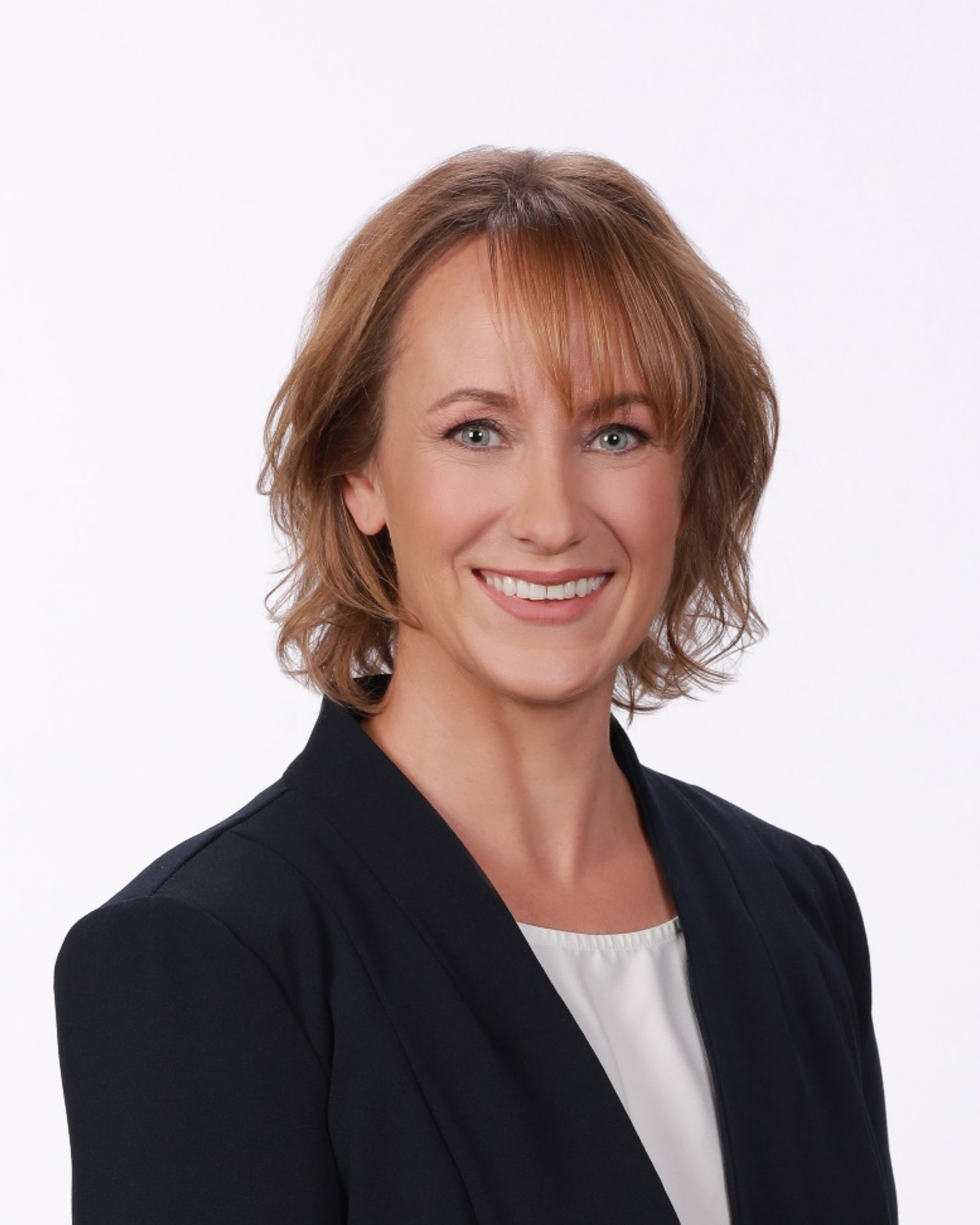
When it comes to produce, are more women coming into the industry? According to Kristen Reid, executive vice president of Mixtec Group BB #:152072, a La Crescenta, CA recruiting firm, the answer is yes.
Reid confirms the playing field is more diverse. “It’s not a hard sell to get women into the produce industry.”
As far as the impact of DEI (diversity, equity, and inclusion) initiatives, she says she can’t speak to their effectiveness or impact since most of her clients are family-owned and operated businesses without such programs.
The good news is most companies in the industry aren’t averse to change.
“They’re having more conversations on diversity,” she observes. “It’s opened the industry’s eyes and created space for additional conversations.”
It’s not all good news though.
“Women have to be very careful about the companies they choose, there are some implicit biases,” she admits, and although it has been felt in some workplaces, the opposite is true as well.
Her advice: “Even if you’re not a family member, if your goal is to be a president and CEO of a company someday, the best thing to do is to take as many lateral positions as possible to develop experience in different functions—because that will help you get there.”
The Right Tyme and Place
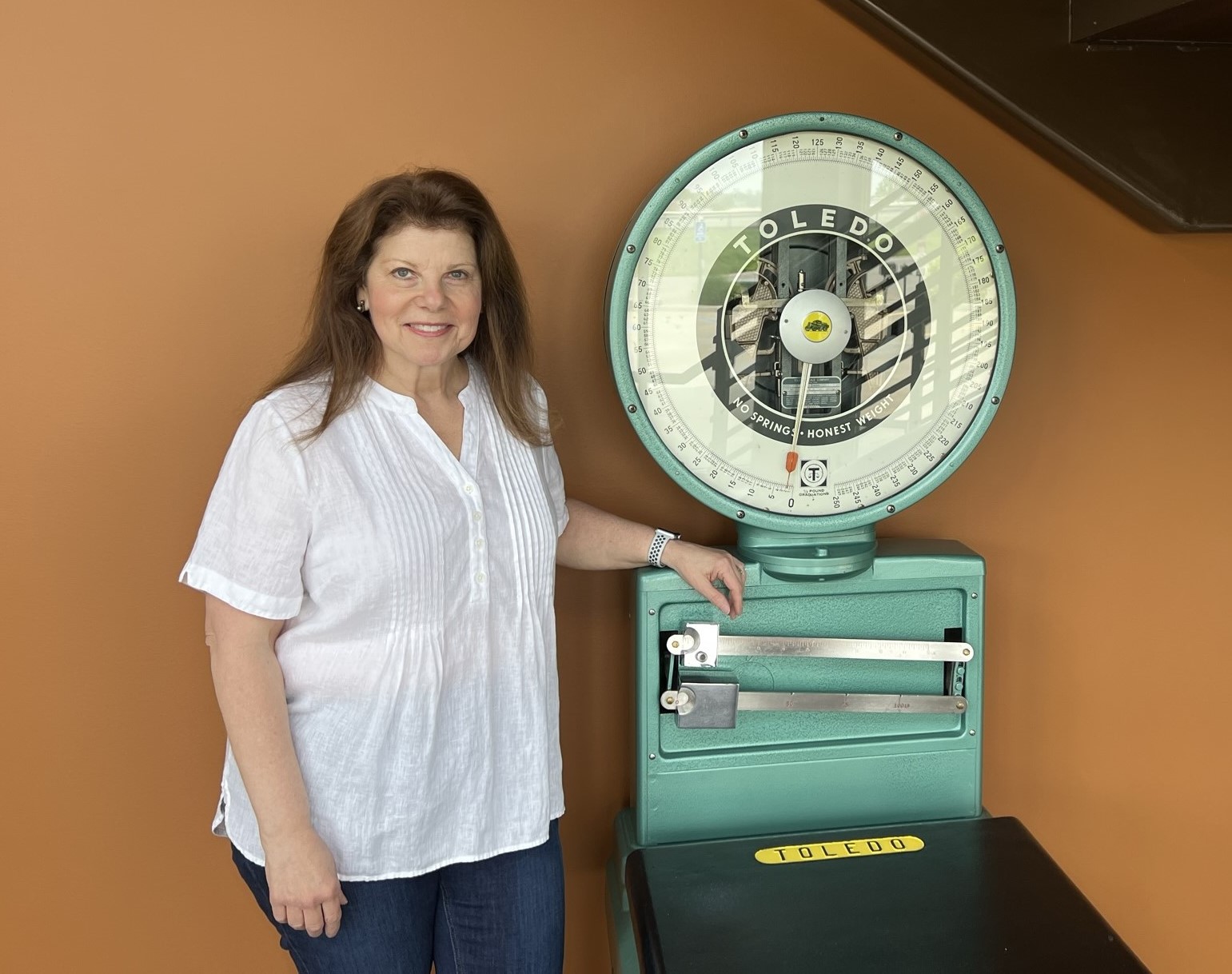
Joan Daleo’s path into produce wasn’t a straight line, despite generations of industry expertise. Ole Tyme Produce, Inc. BB #:119116 was founded by her parents, and her grandparents and great uncle were also wholesalers.
Daleo worked in the family business throughout her childhood but left for college. She returned in 1988, after getting her MBA and working for a diversified utility company.
She began in the accounting department of the St. Charles, MO-based foodservice distributor, then worked in sales, operations, and launched a couple divisions before succeeding her father as president in 2001.
“If you’re going to stay in something, you have to become an expert—everyone can be replaced easily if they’re not an expert.”
She’s learned plenty over the years, but one piece of advice stands out for those seeking success and longevity in the produce realm. “If you’re going to stay in something, you have to become an expert—everyone can be replaced easily if they’re not an expert.”
Despite Ole Tyme’s long tenure as a family business, there’s no kin to take over when Daleo retires. As a result, she’s trying to build a young team, both female and male, to run the company.
As far as a successor, she explains, “Obviously, we want the best candidate. Where candidates are equal, we will take the woman or person of color,” she says, emphasizing the importance of having Ole Tyme’s team “look and feel like the communities we operate in.”
She believes embracing multiple points of view helps a business compete. She also recommends those aspiring to climb the corporate ladder study the company, its relationships, temperament, and operations.
When she does leave the industry, Joan hopes her legacy, besides leaving behind a successful company, will be about progress. “I hope that in whatever way, whatever I’ve done or achieved, it’s easier for the people coming up behind me.”
In looking ahead, Daleo does expect to see more women executives. “It’ll be hard to look up and not see women in the C-suite—they’ll be the only ones to choose from.”
Healthy Growth and Success
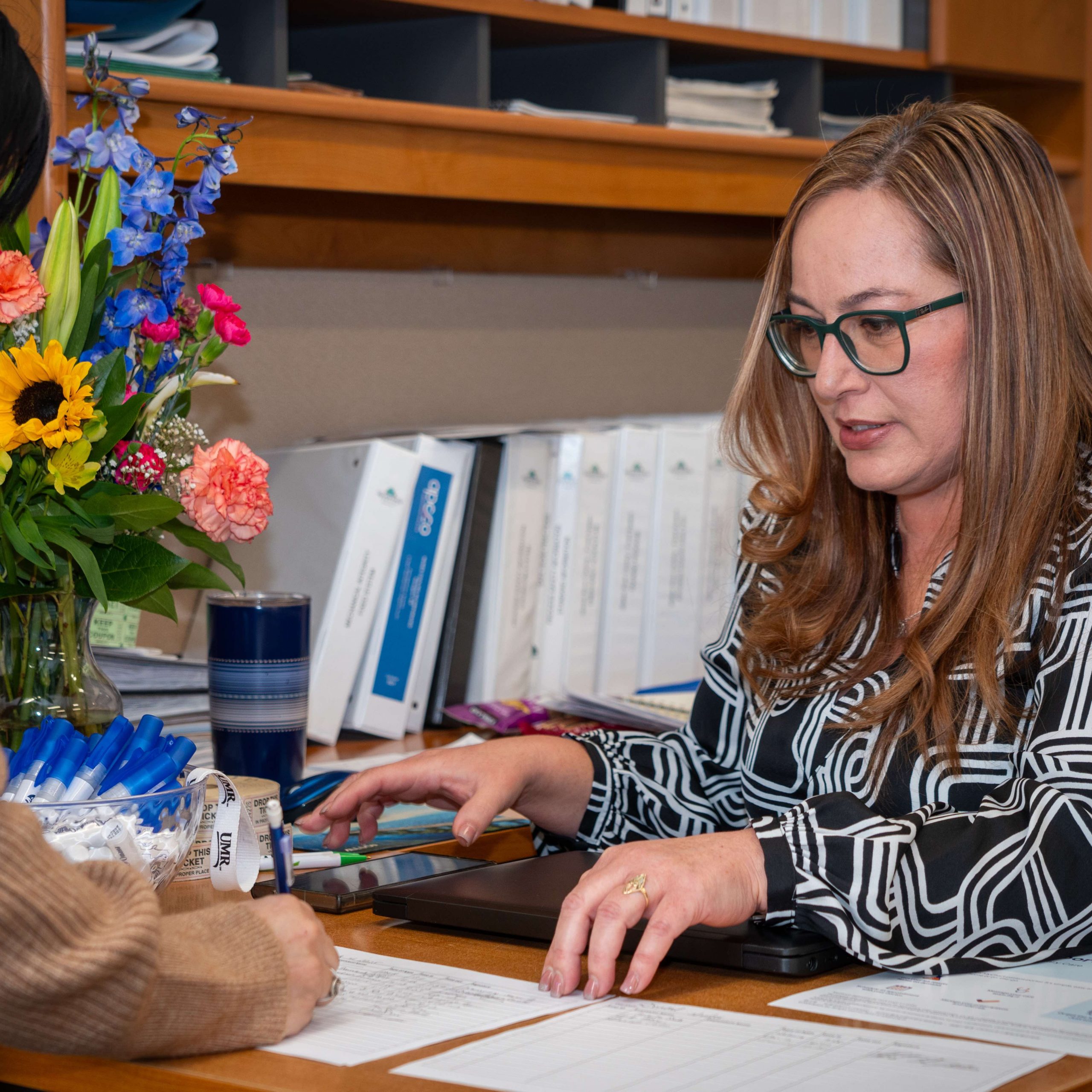
Peri & Sons Farms, Inc. BB #:126045 in Yerington, NV has taken a unique approach in maintaining its workforce and attracting women into its ranks—by creating what it calls a Culture of Wellness.
The grower-shipper provides services such as free daycare to all employees, has a full-time director of organizational psychology on staff, and recently held its first health fair, offering free services such as blood work and mammograms.
The intent was to make it easier for employees to take care of their health, which benefits both them and the company.
“We really want to support our staff, offering as much support as we can,” says Jessica Peri, sales manager. “We care about our people; they’re an intricate part of the success of the organization.”
Peri joined the family business 20 years ago right out of college, even though it was never her plan to do so. In her junior year, she wrote a paper on succession planning with her dad’s business in mind, and it sparked her interest. She then asked to join the company after graduation.
She says she never felt pressure to join the family business and plans to stick around. And when the time comes and her dad decides to step away, she plans to take the helm and run the company.
Peri attributes her success at the company and in the industry to being “hungry and aggressive.” Her philosophy: “Put your head down and work.”
In It for the Long Haul

Gabriela D’Arrigo joined the family business right out of college and is now vice president of marketing and communications for D’Arrigo New York BB #:103639, a full-line distributor and part of the D’Arrigo Bros. family of companies.
She hadn’t intended to join the family business but attended a company meeting while in college and was hooked. She was hired by her cousin Margaret, who was looking to bring more women into the fold.
D’Arrigo read and studied the company, soaking up whatever she could by listening and watching, traveling, talking to others, and fully immersing herself in the business. “I’ve had nothing but positive interactions,” she says. “I’ve always felt support and I have tried to do the same for other women.”
After moving to New York in 2014 following her initial stint in the California office, D’Arrigo took over the marketing department, which she says was nonexistent at the time, and built it up. She’s now branching out with social media and the latest technologies to further augment the business.
She also hired a human resources director, with wide-ranging experience, including working with unions, and credits her with opening the door for other women and implementing policies to help expand available opportunities.
D’Arrigo is currently co-chair of the public relations committee at Hunts Point Produce Market in the Bronx, and is on the board of the International Fresh Produce Association, giving her and D’Arrigo New York greater exposure in the industry.
As far as the future? She’s in it for the long haul and sees herself happily ensconced in the C-suite.
“It’s not a good ’ol boys club anymore.”
Wrap-Up
Whether they joined a family business or came into the industry on their own, the women profiled here and many others are transforming the produce industry.
They’re introducing fresh ideas and bringing unique perspectives to the perishables supply chain. Despite these advances, more change is needed and coming.
D’Arrigo puts it this way: “It’s not a good ’ol boys club anymore.”





